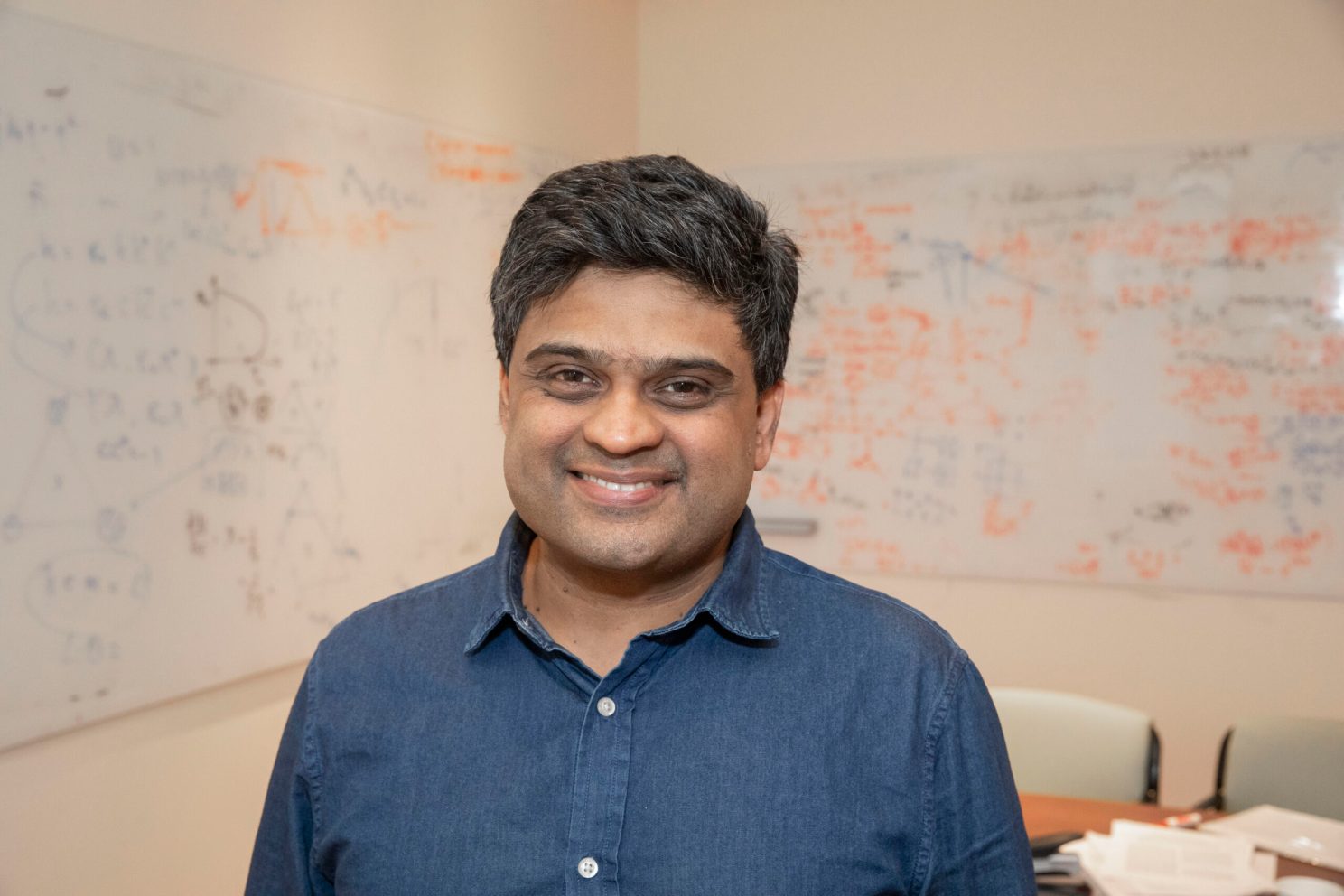Ashvin Vishwanath receives Oliver E. Buckley Condensed Matter Physics Prize

Kris Snibbe/Harvard University Photography
Ashvin Vishwanath, the George Vasmer Leverett Professor of Physics, has received the 2024 Oliver E. Buckley Condensed Matter Physics Prize from the American Physical Society. He is being recognized for groundbreaking theoretical studies “on the collective electronic properties of materials that reflect topological aspects of their band structure.”
Vishwanath, who joined the Harvard faculty in 2016, is a theoretical physicist focused on understanding how collective properties of matter, such as superconductivity, magnetism, and metallic or insulating behaviors, arise from underlying physical laws like quantum mechanics. He studies and classifies novel phases of matter using an interdisciplinary approach that draws on diverse fields like topology and information theory.
He and his collaborators have pioneered multiple new theoretical concepts. These include a novel electronic phase within certain crystalline materials, which they termed Weyl semimetals, and their unique surface states, which were later confirmed by experiment. They have also identified concepts of symmetry indicators and fragile topology, which have facilitated topological materials discovery. And his and others’ research on surface topological order helped generalize the classification of quantum phases far beyond the independent electron approximation.
Vishwanath’s current research includes the study of twisted stacks of two-dimensional materials and of synthetic quantum platforms to realize highly entangled states with “anyons.” These are a class of particle-like excitations that can carry a fraction of an electron’s charge and which, in certain cases, retain a memory of their past trajectory.
Vishwanath is a member of the American Academy of Arts and Sciences, an APS Fellow, and former recipient of the Europhysics Prize, a Sloan Fellowship, and a Guggenheim Fellowship. He is co-recipient of the Buckley prize with Qiken Xue of Tsinghua University.





